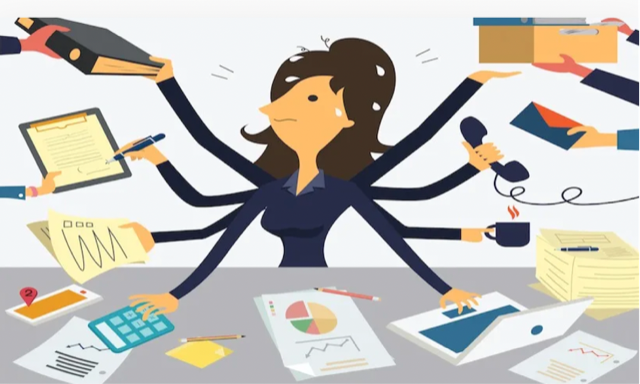Who has never reviewed a document while on the phone? From managers to employees, we are not only overloaded; we often juggle with a multitude of tasks to the point of exhaustion.
If the ability of multitasking, often attributed to women, was for a long time perceived as a key quality in certain roles, giving the illusion of saving time and performance, we now know that it is an illusion.
Why ?
Because the brain, as powerful and plastic as it is, cannot simultaneously process two or more tasks, unless they are instinctive or totally automated, such as walking and talking. In this case, it is the procedural memories that are solicited, capable of functioning "in zombie mode", i.e. independently of our consciousness.
Beyond that, we naturally go into serial mode, so from sorting our emails to our phone conversation, WhatsApp message or a Webinar ....
According to Stanislas Dehaene, from the Psychology of Perception Laboratory at the University of Paris Descartes, a quarter of a second (0.25 seconds) is needed to switch from one task to another. "This is the minimum time interval for our conscious brain to register and manipulate the sensory information related to each task".
And to regain a high level of concentration on each task, it takes much more time....
The frequency of switching from one task to another is extremely energy intensive.
If the attempt to shorten this interval is undoubtedly illusory, the constant interruptions that often require us to switch from one subject to another (on average every 3 minutes for managers) are extremely costly in energy. Indeed, to perform tasks that require a minimum of reflection, it is the prefrontal cortex that is solicited and it is a big consumer of sugar and oxygen.
This mental gymnastics generates a disturbance of the concentration, increases the stress and in the long run... decreases performance....
As a proof, try to drive and solve an addition as simple as 78+84, you will see that it will be much more difficult and longer (if you manage to do it!) than if you sit at your desk.
There is no need to believe that there are superwomen and supermen capable of managing everything simultaneously, without error and over time. Our powers are immense but still limited and in order for our intelligence to give the best within our teams and our organizations, let's stimulate our neurons but not exhaust them unnecessarily.
In order to prioritize, take time off
According to David E Meyer, professor at the University of Michigan and chair of the Cognition and Cognitive Neuroscience area of the Department of Psychology, reviewing the organization of one's day, prioritizing tasks, and ESPECIALLY allowing oneself time to rest are essential to prevent excessive mental fatigue and maintain a good level of attention.
With 2022 coming up, wouldn't it be time to review our organization with that of our limits?
A few tips:
- Compartmentalize and process your activities by category. Example : Admin: reporting, reading of minutes etc... Organization: Doodle, Zoom meetings, travel etc....
- Make sure the context is right for a task. If not, postpone it to a time and place more beneficial to its realization.
- Put your "bandwidth", your parasitic thoughts on a "to-do list" before getting down to work.
- Establish a time in your team meetings for operational or strategic questions from your team: everyone can benefit from the question and the answer, you save yourself some interruptions during the day.
- After repeated interruptions, really and completely unplug from your activity. Take a walk, take a breath, drink a glass of water to come back to the interrupted activity completely.

